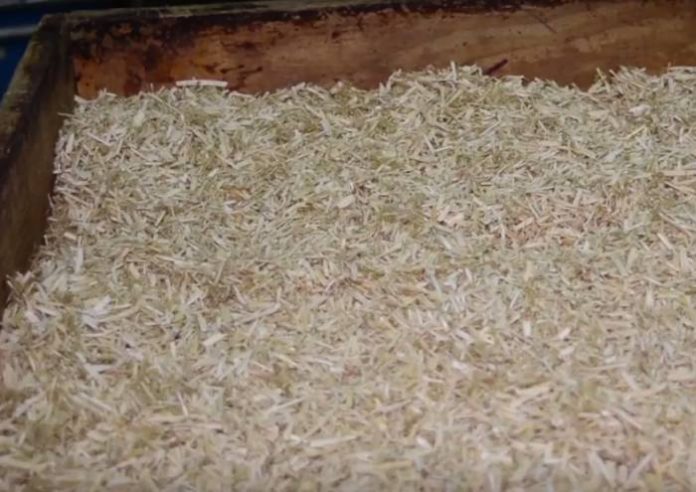A PhD graduate from the University of British Columbia’s faculty of forestry says while flax and hemp particleboard may not yet be ready for prime-time in Canada, it could be in the future.
Particleboard, or chipboard, is commonly used in the construction of houses and furniture. Usually made from recycled timber or timber waste (but some sourced from virgin forests), what holds all the chips together is often a formaldehyde-based resin. Formaldehyde is a suspected carcinogen – and it off-gases when used in resins over the life of the product.
The other problem with particleboard can be sourcing the basic materials. In some countries, supplies of wood chips, shavings and sawdust have become unreliable; with particleboard makers having to compete with other industries such as biofuel producers. In Canada, this has resulted in manufacturers having to shut down at times.
Alternative particleboard materials that could address some of these issues are a mix of flax (linseed) and industrial hemp.
“Both flax and hemp are widely available in Canada, especially in the West,” says wood scientist Solace Sam-Brew. “It’s worth considering their viability as alternative raw materials to wood for particleboard production.”
Using these materials results in a lighter, stronger and more flexible product, but according to Ms. Sam-Brew, a challenge in using the hemp/flax mix is the waxy outer layer on these materials that makes them unsuitable for traditional particleboard glues.
The good news is an adhesive that is suitable, pMDI (polymeric diphenyl methane diisocyanate), doesn’t contain formaldehyde. It’s also more effective in dry and damp environments than conventional adhesives.
The bad news is that it’s comparatively quite expensive.
While the economics don’t look good now in Canada, they could later on Ms. Sam-Brew says. Aside from flax and hemp being abundant in the country; it would also have the advantages of manufacturers no longer having to compete for wood residue and the financial benefits associated with the potential for faster production and a lighter, better quality product.
“If a company has to travel long distances to collect the wood waste they need to make their products, that costs them money. The particleboard industry could benefit from using non-wood resources if the price is right,” states Ms. Sam-Brew.


